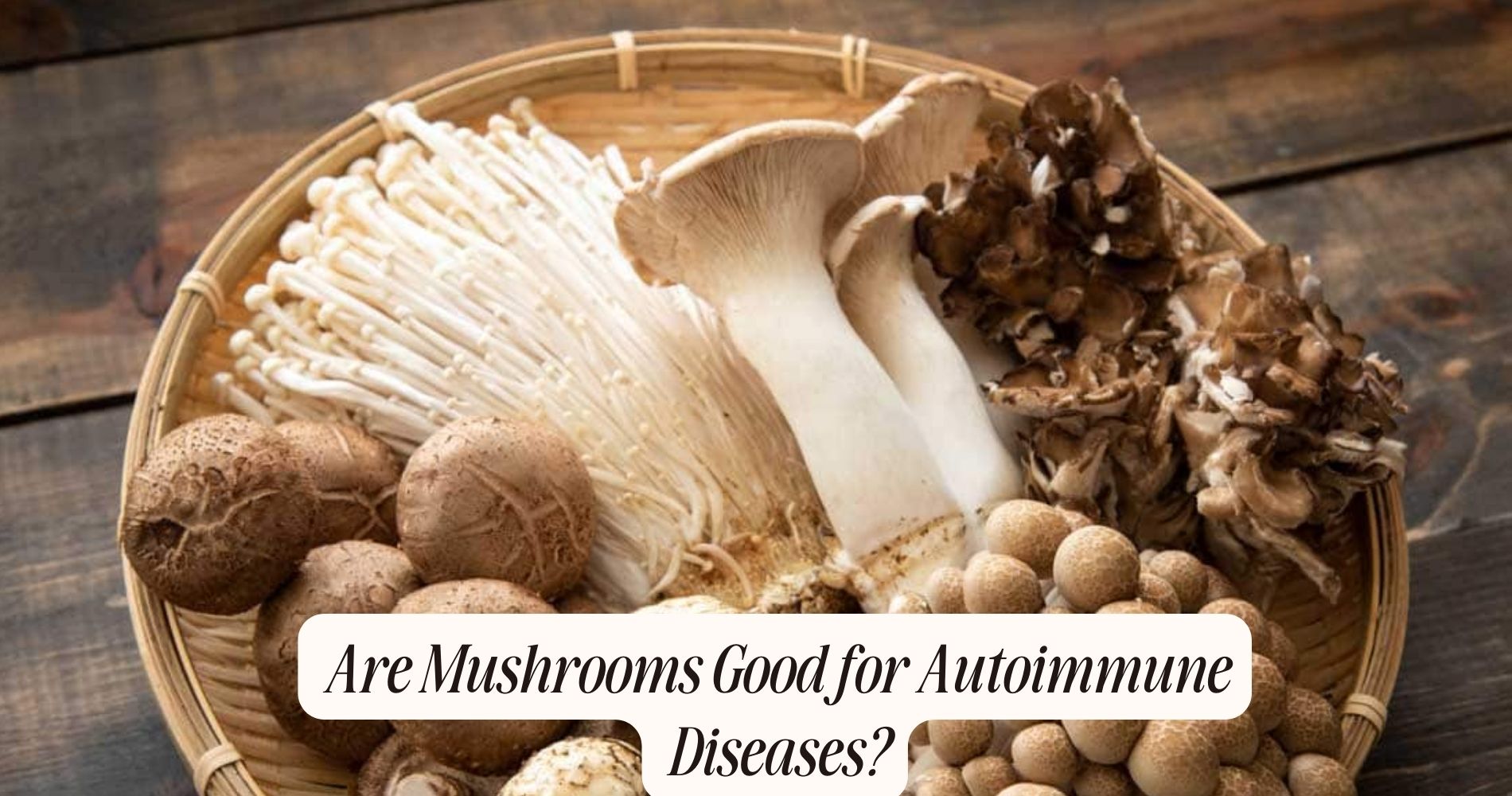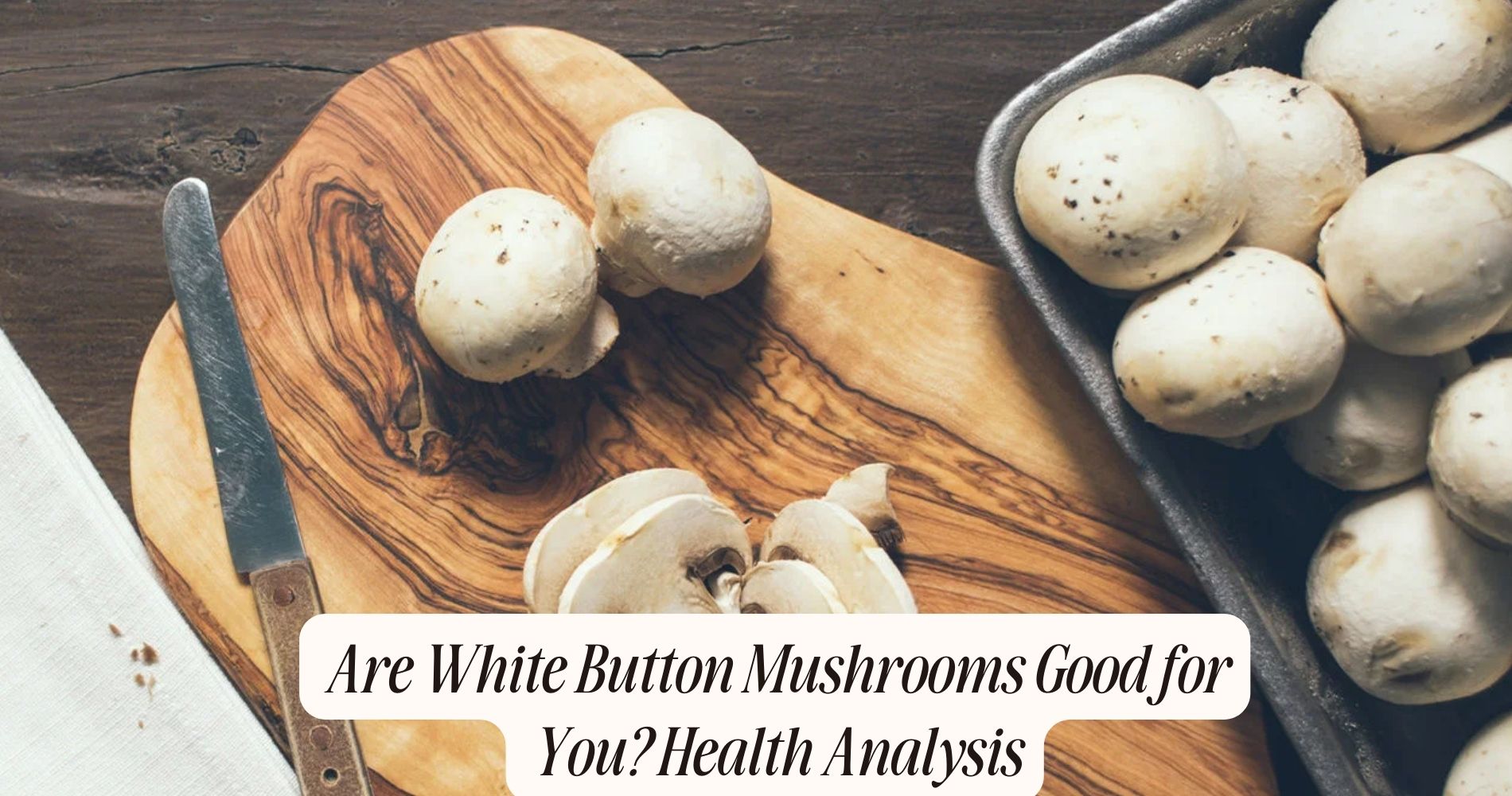
Are Mushrooms Good for Autoimmune Diseases?
Understanding Autoimmune Diseases
Autoimmune diseases occur when the immune system mistakenly attacks the body's own tissues, leading to chronic inflammation and tissue damage. You've got to understand that the development of these conditions is multifactorial.
A significant aspect is genetic predisposition. If your family has a history of autoimmune diseases, you're at a higher risk. Certain genes can make your immune system more prone to error, increasing the likelihood of it targeting its own cells.

However, genetics alone don't tell the whole story. Environmental triggers play a vital role in the onset of autoimmune diseases. Factors such as infections, toxins, and stress can instigate an immune response that goes awry.
For instance, viral infections might mimic the structure of your body's cells, causing the immune system to become confused and attack healthy tissues. Additionally, lifestyle factors like smoking, diet, and exposure to pollutants can exacerbate these conditions.
Nutritional Profile of Mushrooms
Mushrooms are packed with essential nutrients, including vitamins, minerals, and bioactive compounds, that can offer various health benefits.
When you examine their vitamin content, mushrooms are particularly rich in B vitamins, such as riboflavin (B2), niacin (B3), and pantothenic acid (B5). These vitamins play important roles in energy metabolism, red blood cell production, and maintaining healthy skin. Additionally, mushrooms are one of the few natural sources of vitamin D, specifically D2 (ergocalciferol), which is essential for bone health and immune function.
In terms of mineral composition, mushrooms provide significant amounts of selenium, potassium, and copper. Selenium acts as an antioxidant, helping to protect your cells from damage. Potassium is necessary for maintaining normal nerve function and regulating muscle contractions. Copper is involved in iron metabolism and the formation of connective tissue.
Furthermore, mushrooms contain bioactive compounds like beta-glucans and ergothioneine, which have been shown to exhibit antioxidative and immune-modulating properties.
Anti-Inflammatory Properties
Emerging research indicates that certain bioactive compounds in mushrooms, such as beta-glucans and ergothioneine, exhibit significant anti-inflammatory properties that can modulate the body's immune response. These anti-inflammatory compounds, particularly mushroom polysaccharides, play an essential role in reducing inflammation.
Beta-glucans, a type of polysaccharide, are known to interact with various immune cell receptors, thereby inhibiting pro-inflammatory cytokine production. This action can mitigate chronic inflammation, which is a common feature in many autoimmune diseases.

Ergothioneine, a powerful antioxidant found abundantly in mushrooms, further contributes to their anti-inflammatory properties. By scavenging free radicals and reducing oxidative stress, ergothioneine helps in lowering inflammation at the cellular level. This antioxidant activity is particularly beneficial in protecting tissues from damage caused by chronic inflammatory responses.
Studies have shown that these mushroom-derived anti-inflammatory compounds can be effective in reducing markers of inflammation, such as C-reactive protein (CRP) and interleukin-6 (IL-6). Incorporating mushrooms into your diet could offer a natural approach to managing inflammation.
Immune System Modulation
In addition to their anti-inflammatory properties, certain compounds in mushrooms have been shown to modulate the immune system by enhancing the activity of natural killer cells and promoting the balance of Th1/Th2 cytokine responses. This immune modulation is essential for managing autoimmune diseases, where the immune system mistakenly targets the body's own tissues. By balancing the Th1/Th2 responses, mushrooms can help shift the immune system away from harmful autoimmune responses and towards a more regulated state.
Beta-glucans, a type of polysaccharide found in mushrooms, are particularly effective in this immune modulation. They bind to receptors on immune cells, such as macrophages and dendritic cells, thereby activating pathways that enhance immune surveillance and pathogen clearance.
Additionally, mushrooms contain various bioactive compounds, like ergothioneine and selenium, which have been shown to support immune function. Evidence suggests that these compounds not only boost the activity of natural killer cells but also regulate cytokine production, which is often imbalanced in autoimmune conditions. By promoting a balanced cytokine environment, mushrooms can potentially reduce the severity of autoimmune responses, making them a valuable adjunct in the management of autoimmune diseases.
Key Types of Beneficial Mushrooms
Several key mushroom species have shown significant potential in managing autoimmune diseases due to their unique bioactive compounds and immune-modulating properties. Adaptogenic mushrooms, such as Reishi (Ganoderma lucidum), Chaga (Inonotus obliquus), and Lion's Mane (Hericium erinaceus), have garnered attention for their historical usage and therapeutic benefits.
Reishi, often referred to as the 'Mushroom of Immortality,' has been used in traditional medicine for centuries to enhance immune function and reduce inflammation. Its bioactive compounds, including triterpenoids and polysaccharides, contribute to its adaptogenic properties, promoting homeostasis within the immune system.

Chaga, another potent adaptogen, is rich in antioxidants like superoxide dismutase, which can help mitigate oxidative stress—a common issue in autoimmune conditions. Its historical usage in Siberian and Northern European folk medicine highlights its role in strengthening the body's defenses.
Lion's Mane, recognized for its neuroprotective and cognitive-enhancing effects, contains hericenones and erinacines, compounds that support nerve growth factor synthesis. This mushroom not only aids neurological health but also modulates immune responses.
Scientific Studies and Evidence
Scientific research has increasingly validated the therapeutic potential of mushrooms like Reishi, Chaga, and Lion's Mane through rigorous studies demonstrating their immune-modulating effects and bioactive compounds.
For example, Reishi contains triterpenes and polysaccharides which have been shown to modulate cytokine production, potentially mitigating autoimmune responses. Chaga is rich in betulinic acid and inotodiol, compounds that exhibit anti-inflammatory properties, essential for managing autoimmune conditions exacerbated by genetic predisposition and environmental triggers.
Lion's Mane, known for its neuroprotective effects, has been studied for its impact on nerve growth factor (NGF) levels, which can be beneficial for autoimmune diseases involving neurological components. Several studies have indicated that these mushrooms can influence the gut microbiome, a key player in immune system regulation. By altering gut flora, these mushrooms can potentially reduce the impact of environmental triggers that exacerbate autoimmune conditions.

Furthermore, clinical trials have explored the efficacy of these mushrooms in autoimmune diseases like rheumatoid arthritis and multiple sclerosis. The evidence suggests that incorporating them into your diet may offer adjunctive benefits, especially when genetic predispositions and environmental triggers play a significant role in disease manifestation.
Expert Opinions and Insights
Renowned immunologists and mycologists argue that the bioactive compounds in mushrooms like Reishi, Chaga, and Lion's Mane could offer significant therapeutic benefits for autoimmune diseases. These experts assert that the polysaccharides, beta-glucans, and triterpenes found in these fungi have immunomodulatory properties. They believe these compounds can help regulate the immune system, potentially mitigating disease triggers that lead to autoimmune flare-ups.
Leading researchers emphasize that these mushrooms may aid in symptom management by promoting anti-inflammatory responses and reducing oxidative stress. For instance, Reishi's triterpenes have been shown to inhibit pro-inflammatory cytokines, thereby alleviating symptoms such as joint pain and fatigue commonly associated with autoimmune conditions.
Mycologists also highlight that the neuroprotective qualities of Lion's Mane might benefit autoimmune diseases that affect the nervous system, such as multiple sclerosis. By encouraging nerve growth factor production, Lion's Mane could support nerve cell repair and maintenance, offering a novel approach to symptom management.
Incorporating Mushrooms Into Your Diet
To maximize the potential benefits of mushrooms for autoimmune conditions, you'll want to focus on selecting medicinal varieties such as Reishi, Shiitake, and Maitake, which have been shown to possess immunomodulatory properties.
Incorporating these mushrooms into your diet can be straightforward with practical recipe ideas like adding them to soups, stir-fries, or even brewing them as teas.
Scientific studies support these methods as effective ways to harness their health-promoting compounds.
Selecting Medicinal Mushrooms
When choosing medicinal mushrooms to include in your diet, it's important to consider their unique bioactive compounds and their specific effects on autoimmune conditions.
Start by identifying species known for their immunomodulatory properties. For example, Reishi (Ganoderma lucidum) contains triterpenoids and polysaccharides that have been shown to regulate immune responses. Similarly, Turkey Tail (Trametes versicolor) is rich in polysaccharopeptides, which can enhance immune function.
Next, consider sourcing locally to guarantee freshness and potency. Locally grown mushrooms are less likely to be exposed to contaminants and often retain higher concentrations of their bioactive compounds. Farmers' markets or specialized local growers can provide you with high-quality options. Additionally, some local species might possess unique compounds that can benefit your specific autoimmune condition.

Furthermore, it's important to evaluate the method of preparation and consumption. Different species may require different preparation techniques to maximize their therapeutic benefits. For instance, some mushrooms release their beneficial compounds best when consumed as extracts or teas, while others can be eaten whole.
Incorporating these factors into your selection process will help optimize the therapeutic potential of medicinal mushrooms for managing autoimmune diseases.
Easy Recipe Ideas
Incorporating medicinal mushrooms into your diet can be straightforward with a few evidence-based, nutrient-dense recipes.
For quick meals, consider a mushroom and quinoa stir-fry. Quinoa, a complete protein, complements the immune-modulating properties of shiitake mushrooms. Sauté shiitakes with garlic and ginger, then mix with cooked quinoa and a splash of tamari sauce for a meal rich in antioxidants and anti-inflammatory compounds.
For a simple snack, try reishi mushroom tea. Reishi, known for its adaptogenic properties, can be boiled with water and a cinnamon stick. Simmer for 30 minutes, strain, and enjoy a warm beverage that may help regulate your immune response.
Another efficient recipe is a mushroom and avocado toast. Use a sturdy whole-grain bread, toast it, and top with mashed avocado and sautéed maitake mushrooms. Maitake mushrooms are recognized for their beta-glucan content, which supports immune function. This snack offers a balance of healthy fats and immune-boosting nutrients.
Lastly, a quick option is to incorporate mushroom powder into your morning smoothie. Add a teaspoon of cordyceps powder to a blend of spinach, banana, and almond milk. Cordyceps are noted for their potential to enhance immune activity and overall well-being.
Discover Well Gummies: Your Daily Boost of Super Mushrooms
As we explore the benefits of mushrooms for autoimmune diseases, it's exciting to introduce a practical and tasty way to incorporate these powerful fungi into your daily routine. Meet the SUPER MUSHROOM GUMMIES by Well Gummies, a convenient and enjoyable gum chew packed with the goodness of 10 functional mushrooms. These vegan gummies are designed to fuel your brain and energize your body naturally, providing calmer energy, sharper focus, and robust immune support to foster a balanced body and a clear mind. Each gummy bursts with the flavor of fresh wild berries, offering the delightful taste of your favorite candy without the jitters or crash. Embrace a brighter, more active day with every chew of SUPER MUSHROOM GUMMIES.
Frequently Asked Questions
Can Mushrooms Interact With Autoimmune Disease Medications?
You should be cautious with mushrooms as they can affect your immune response. Some compounds in mushrooms might lead to medication interactions, potentially altering the effectiveness or side effects of your autoimmune disease treatments.
Are There Any Side Effects of Consuming Mushrooms for Autoimmune Diseases?
You're curious about side effects of consuming mushrooms for autoimmune diseases. Evidence suggests potential impacts on digestive health and rare allergic reactions. Always consult healthcare professionals to confirm that mushrooms don't interfere with your specific condition.
How Do Mushrooms Compare to Conventional Treatments for Autoimmune Diseases?
You should compare mushrooms' immune modulation and adaptogenic properties to conventional treatments. While mushrooms offer natural immune support, conventional treatments often provide targeted, evidence-based results. More research is needed to fully understand their comparative efficacy.
Are There Specific Mushroom Supplements Recommended for Autoimmune Conditions?
Yes, you can find specific mushroom supplements recommended for autoimmune conditions. Mushroom extracts like Reishi and Cordyceps are noted for their immune-boosting properties, backed by studies indicating their potential to modulate immune responses effectively.
Can Children With Autoimmune Diseases Safely Consume Mushrooms?
You can safely include mushrooms in your child's diet, considering their nutritional benefits and immune support properties. However, consult a healthcare professional to make sure they don't trigger any adverse reactions specific to your child's autoimmune condition.
Conclusion
Incorporating mushrooms into your diet can offer significant benefits for managing autoimmune diseases. Their rich nutritional profile, combined with anti-inflammatory properties and immune system modulation, makes them a valuable addition.
Scientific studies support the efficacy of key mushrooms like reishi, shiitake, and maitake in reducing inflammation and regulating immune responses.
Experts agree that regular consumption can complement conventional treatments, enhancing overall health and potentially alleviating autoimmune symptoms.
Don't overlook this natural, evidence-based option.




